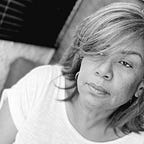Ugly, but Interesting:
I was about 12 years old, in my last year of primary school when I was approached by a boy in my class. He was a friend of mine, and we always hung out. One day after playing around, he hugged me and told me I was cute. I blushed and that day rushed home to read the definition of "cute" in the dictionary we had at home.
It said, "ugly, but interesting." Given any child of that age insecurities, I was hurt and wanted to cry.
Over the years, I got told by quite a few boys that I was cute, and because I consulted the dictionary years ago and knew what it meant, it just made me more insecure.
One particular day, my husband, after 2 years together, laughed at something I had said and called me cute!
I became upset and finally said, "it's insulting to call me ugly." He was taken aback and denied doing so, and I said that calling me cute was not a compliment as it meant "ugly, but interesting."
We then argued about the dictionary definition until I picked up a dictionary, and lo and behold, cute, had changed to, "attractive, pretty in an endearing way."
White people should apply that logic to the definition of racism when they "put forward an argument" about racism.
Dictionaries aren't static, and as with most things in life, you, therefore, can't use the definition of racism that was first published in 1945 (let's say) and apply it to today's state of the world.
Besides, lexicons were primarily white and male. There are very few people who rise above their internal, often subconscious biases to be fair in their assessments. Lexicons are not superhumans! Denying this is dishonest.
In 2020, Kennedy Mitchum, a 22-year-old African American woman from Missouri, challenged Merriam Webster's definition of racism. She wrote to them because she had gotten into a few conversations about racism in which people referred her to the dictionary definition.
Much like many Black, Brown and Indigenous people, she understood that the current definition of racism was not only woefully inadequate but incorrect.
"I kept having to tell them that definition is not representative of what is happening in the world," she told CNN. "The way that racism occurs in real life is not just prejudiced it's the systemic racism that is happening for a lot of black Americans."
(Merriam Webster agreed to change the definition to include a more realistic version of racism)
It is unrealistic to expect that changes can be made to some words but not others. Besides, the racists use this as a tool in their fight to be right! Even in the face of overwhelming evidence to the contrary, they will persist.
Definitions are constantly updated, and we can't form a "do not touch" circle around the word racism in the dictionary.
Another example is that the words "wife-beater" used to mean: noun: "a man who regularly or habitually hits his wife or partner."
Now there is an informal addition to the words: "a man's sleeveless vest or T-shirt."
We need to realize that racists will grasp at straws in an attempt to further their agenda.
This may not be acceptable to them, but they need to move with the times. If not, they will end up, as I did with the incorrect but outdated "ugly, but interesting" definition of cute.
